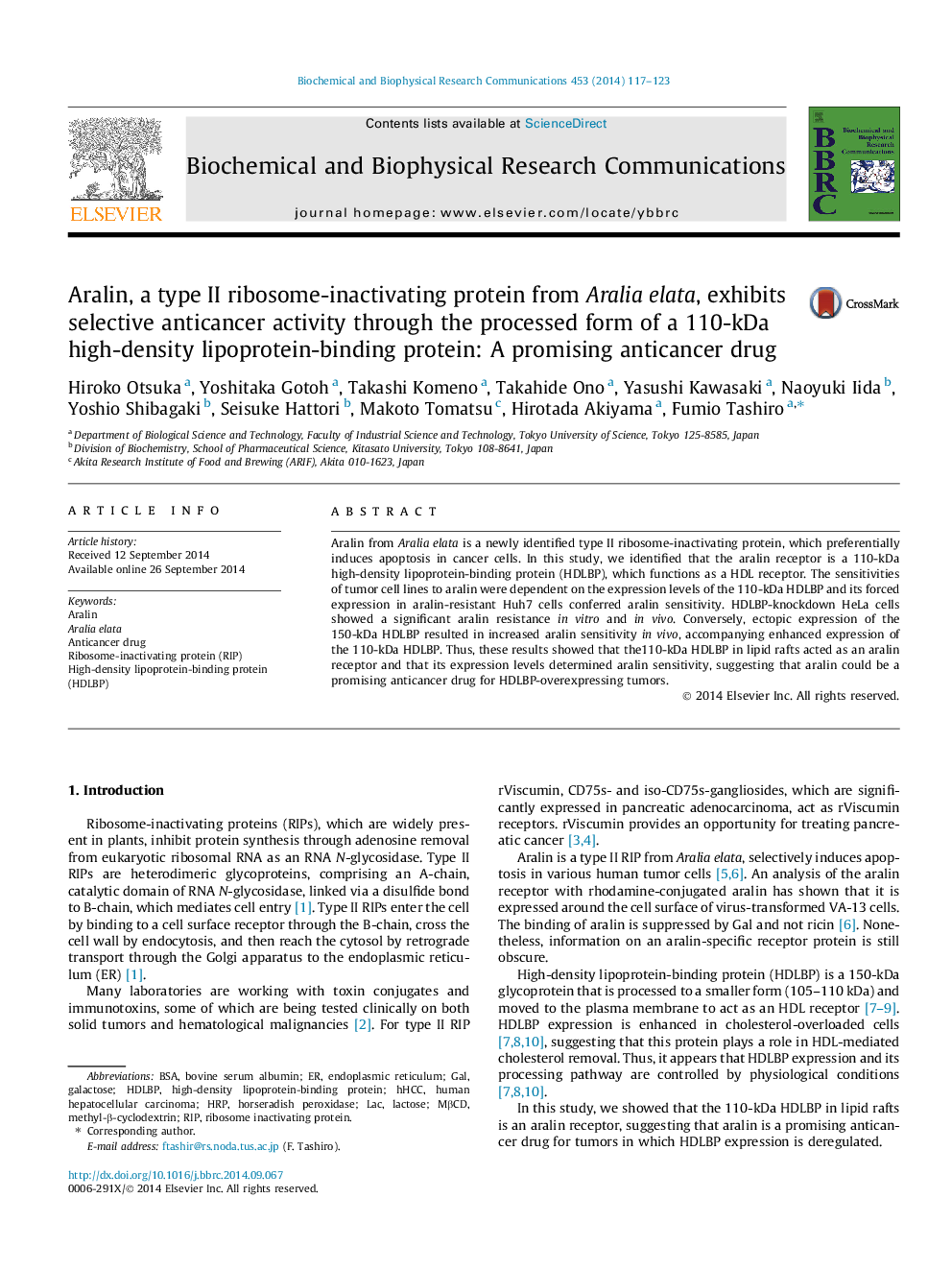| Article ID | Journal | Published Year | Pages | File Type |
|---|---|---|---|---|
| 1928321 | Biochemical and Biophysical Research Communications | 2014 | 7 Pages |
•Oral administration of aralin suppressed tumorigenesis.•Aralin receptor is a 110-kDa high-density lipoprotein-binding protein (HDLBP).•Forced expression of the 110-kDa HDLBP conferred aralin sensitivity on tumor cells.•Expression level of the 110-kDa HDLBP determined aralin sensitivity in vitro and in vivo.•Aralin could be a promising anticancer drug for HDLBP-overexpressing tumors.
Aralin from Aralia elata is a newly identified type II ribosome- inactivating protein, which preferentially induces apoptosis in cancer cells. In this study, we identified that the aralin receptor is a 110-kDa high-density lipoprotein-binding protein (HDLBP), which functions as a HDL receptor. The sensitivities of tumor cell lines to aralin were dependent on the expression levels of the 110-kDa HDLBP and its forced expression in aralin-resistant Huh7 cells conferred aralin sensitivity. HDLBP-knockdown HeLa cells showed a significant aralin resistance in vitro and in vivo. Conversely, ectopic expression of the 150-kDa HDLBP resulted in increased aralin sensitivity in vivo, accompanying enhanced expression of the 110-kDa HDLBP. Thus, these results showed that the110-kDa HDLBP in lipid rafts acted as an aralin receptor and that its expression levels determined aralin sensitivity, suggesting that aralin could be a promising anticancer drug for HDLBP-overexpressing tumors.
